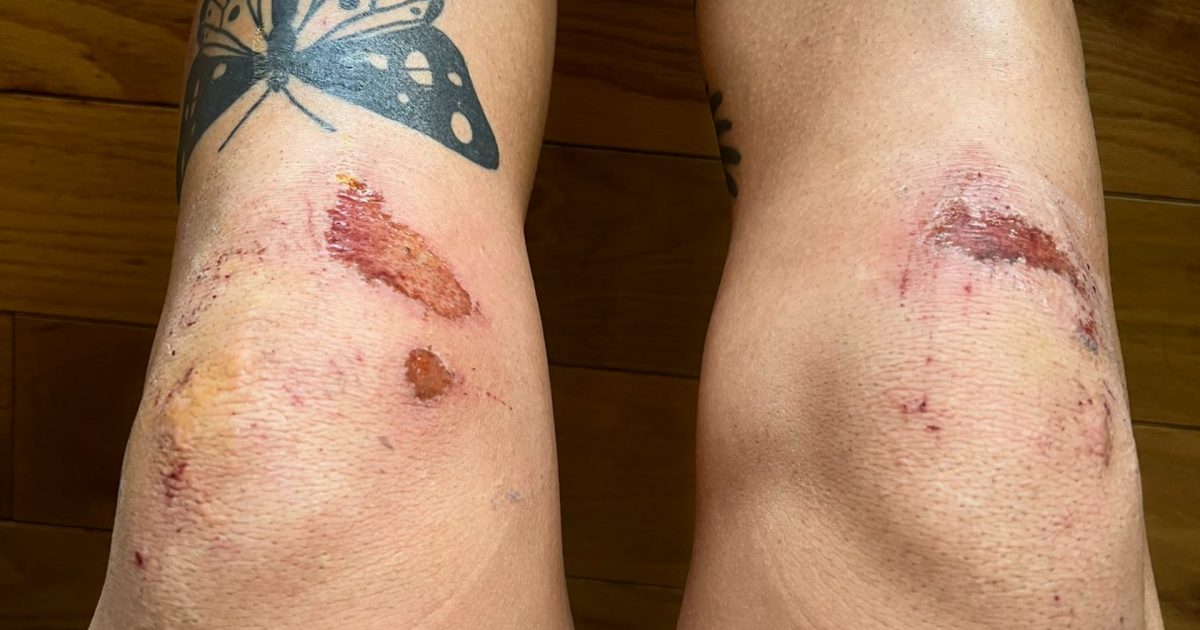'The biggest thing we have been told is there's no right or wrong'

Artificial surfaces have been a regular talking point in this season’s Gallagher Premiership as the number of these types of pitches increased to four for the 2021/22 campaign with Saracens gaining promotion back from the Championship and Gloucester getting rid of their grass pitch. Saturday night’s schedule will see the league’s other two artificial surface clubs, Newcastle and Worcester, go head to head on the pitch at Kingston Park after their game was held over from Friday due to Storm Arwen.
Much of the headline-making commentary about artificial pitches has been negative. England prop Joe Marler called for a ban after Harlequins’ opener at Newcastle while a picture by Jack Nowell of his burned knees went viral following Exeter’s trip to Gloucester. But what about those clubs who have these surfaces – what is their take on the conversation that has been happening with the season about to head into the depths of the English winter?
Ex-Wales back-rower Jonathan Thomas has been head coach at Worcester since last January. Their artificial surface is hardly a major influence on the results of their matches – they don’t win all that much. But what does he make of the surface they play on at Sixways? When he initially came to Worcester last year as their defence coach, the artificial pitch was a question he regularly asked about as the club has had a Limonta Max S Turf surface since 2016.
“Since coming back to Worcester I had to ask a lot of questions myself because a player I had played on 3G pitches but not consistently in the terms of the club I was at hadn’t one, so you ask a lot of questions. There are a lot of questions around what is the best surface to train on, to play on and all the questions that go with that,” said Thomas before Saturday’s game on Newcastle’s SIS – Rugger surface which they have used since 2014.
"In terms of how it came about, I can’t answer that"
– With the Worcester stage set for Steve Diamond to start work next Monday, @heagneyl 👨💻 has heard from Jonathan Thomas about the prospect of having a no-nonsense line manager #Warriors #GallagherPremhttps://t.co/tHPhJv769w
— RugbyPass (@RugbyPass) November 24, 2021
“It’s like anything in life, it’s whatever you get used to and if you were to ask our younger players who have not known any different, our 18-to-23-year-olds have never trained on anything other than the 3G pitch. When you speak to them about the 3G pitch they sort of look at you confused, they have got no issue with it because they have not known any different. They like and enjoy it and when you then go and train on grass, they are sort of raising their eyebrows going, ‘Why aren’t we training on the 3G?’
“It is whatever you get used to in life and conversely the ones who usually have a little whinge about it are the senior players who have been used to training on grass and softer pitches their whole lives. The biggest thing we have been told is there is no right or wrong. The biggest thing is consistency and where you get potential injuries is the inconsistency (in the use) of the surfaces, not the surface itself.
“We train full-time on our 3G pitch, which gives us consistency and allows the players’ bodies to adapt to that surface. Our particular surface is coconut so it means we water it and the players don’t perhaps experience the same burns as maybe other pitches, but it is what it is.
“When perhaps 20 years ago you were watching mud fests, the positive of 3G pitches in a sport which is about entertainment, in the middle of winter it is giving a better entertaining game because of the consistency of the pitches. But I do also appreciate that for players and teams that don’t play on them every week it is a challenge when they play on an artificial surface because they are not used to it.”
Worcester skipper Ted Hill is one of those 18-to-23-year-old players Thomas was referring to and the artificial pitch is his preference. “As a player who has been at Sixways all my life, I am massively used to playing on 3G and would say I prefer it,” he enthused.
“You get a lot of players who train week in, week out on the grass and they go onto 3G and it’s quite hard, there is a little bit less give but I have played on it all my life and it’s not an issue for me. As a lineout jumper, it is difficult sometimes on the joints but that is the same on grass as well. I would say I prefer the 3G. The only difference is there is a little bit less give and you end up with scratches on it, but we actually don’t here because luckily we have that coconut stuff so it seems to be alright.”

























































I recall this being a major issue several decades ago in UK football. Whilst I appreciate the difficulties clubs have with playing surfaces in The UK. I thank heavens we don't have to put up with fake grass down here in South Africa. We even refuse to put that shyte in our tiny garden.